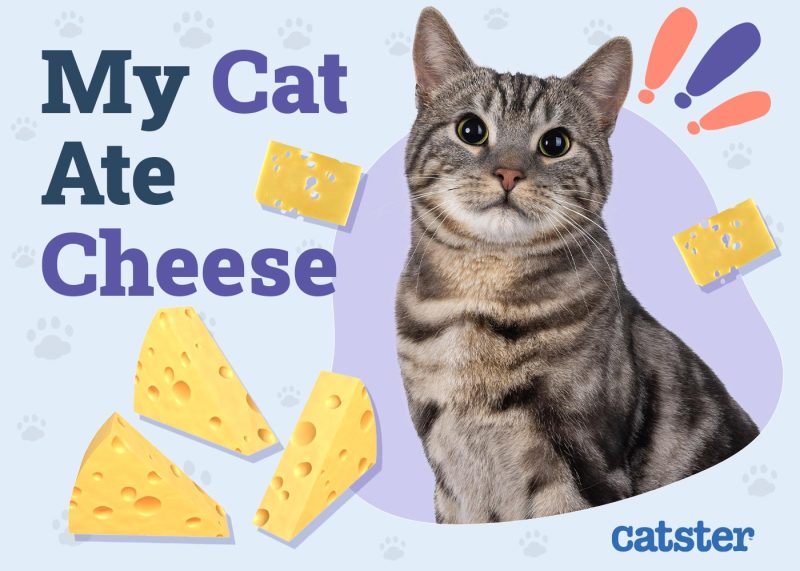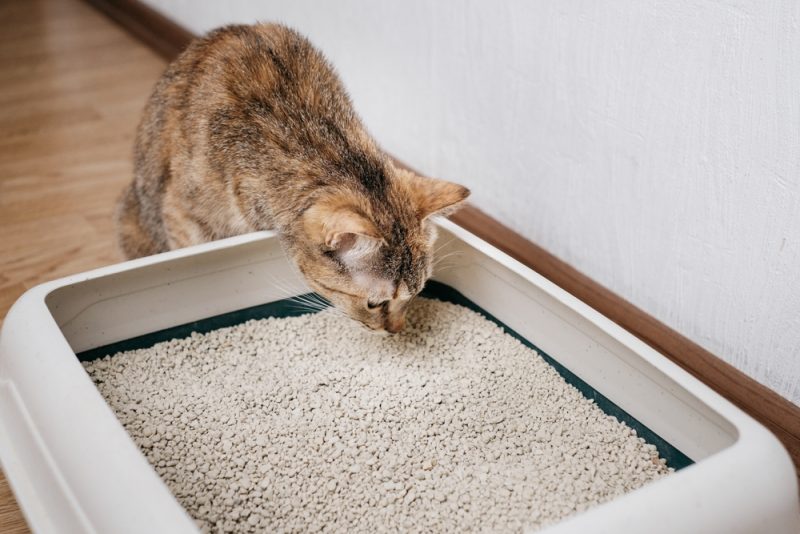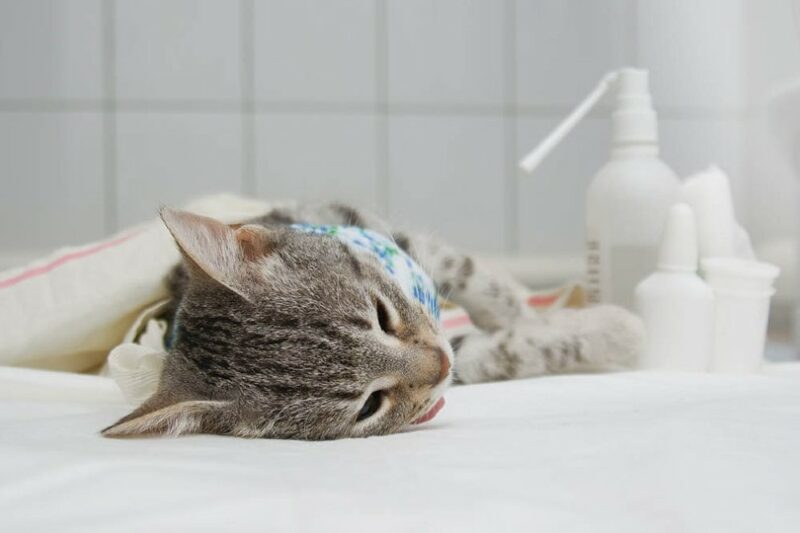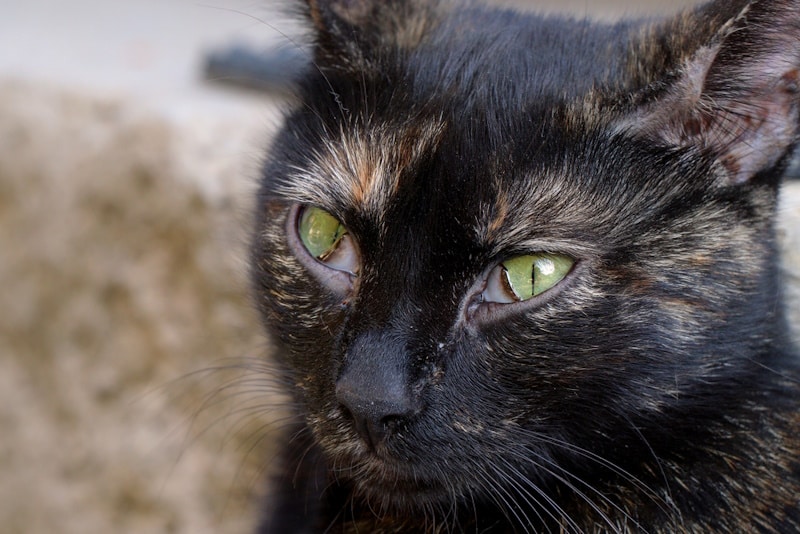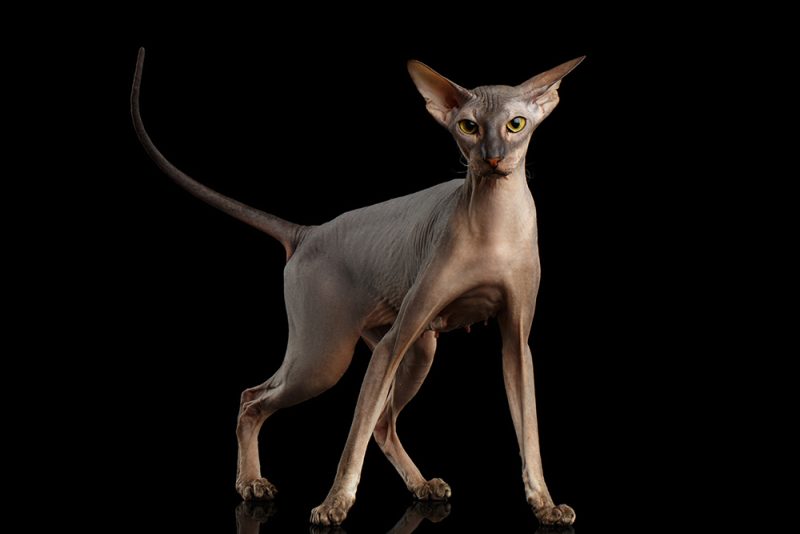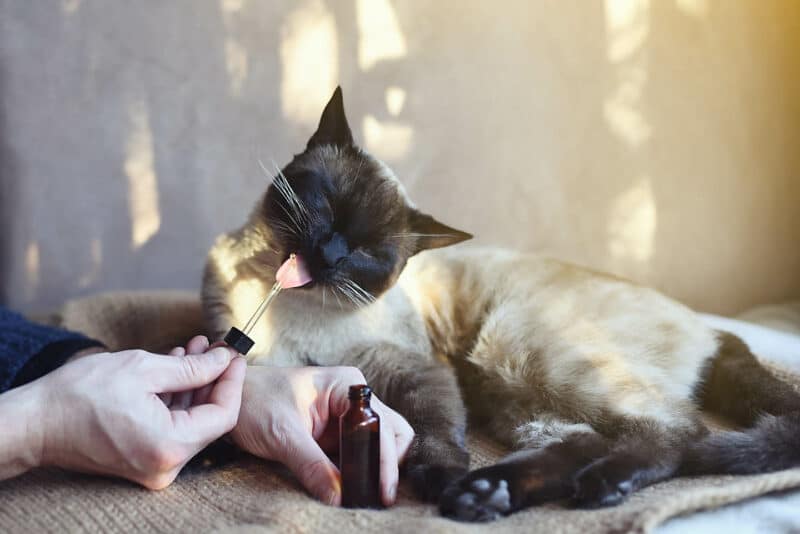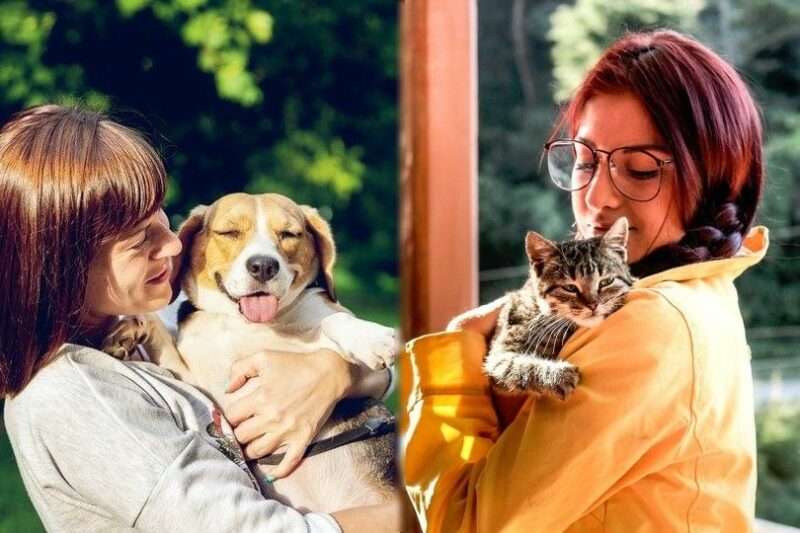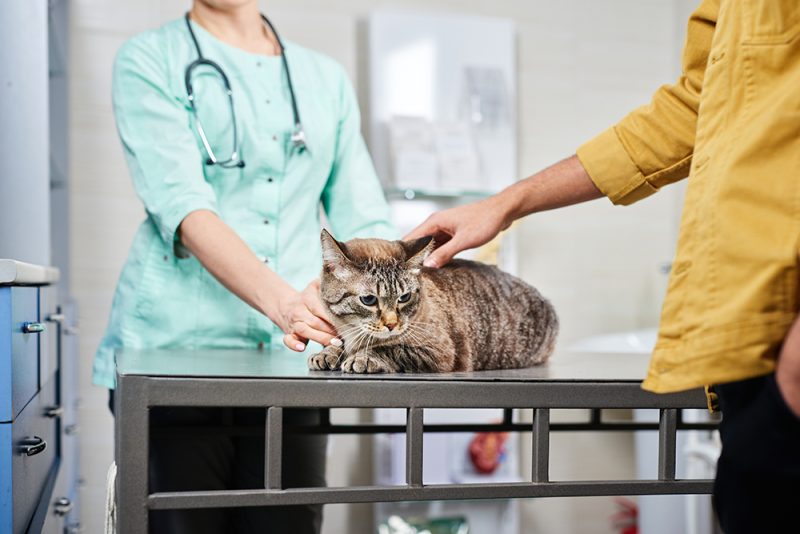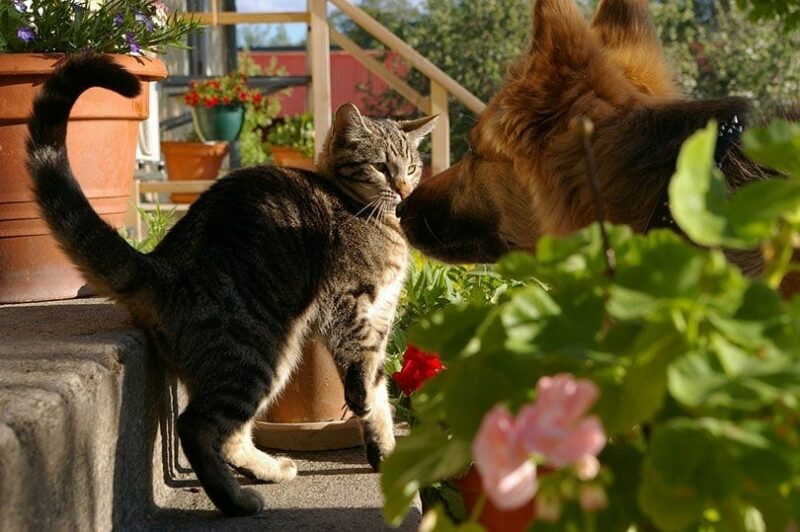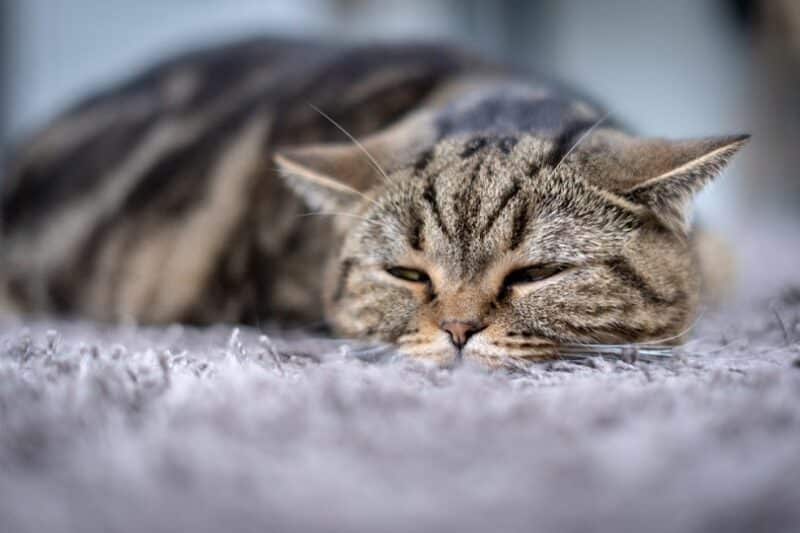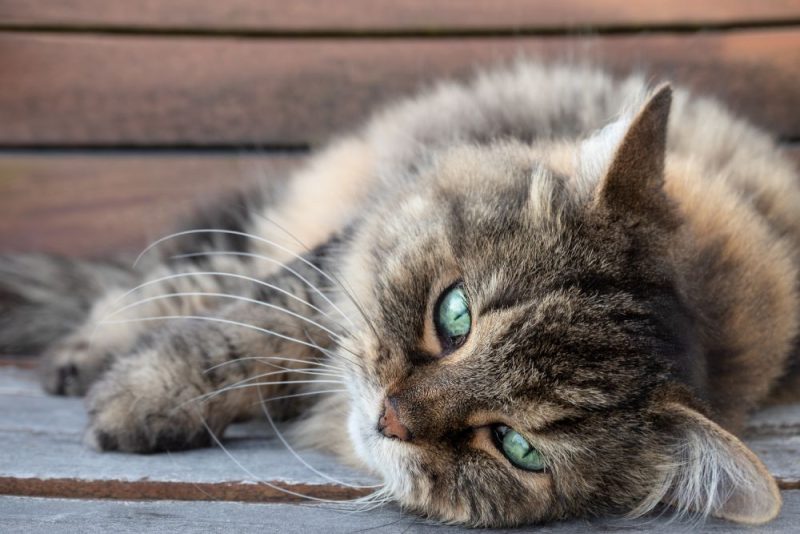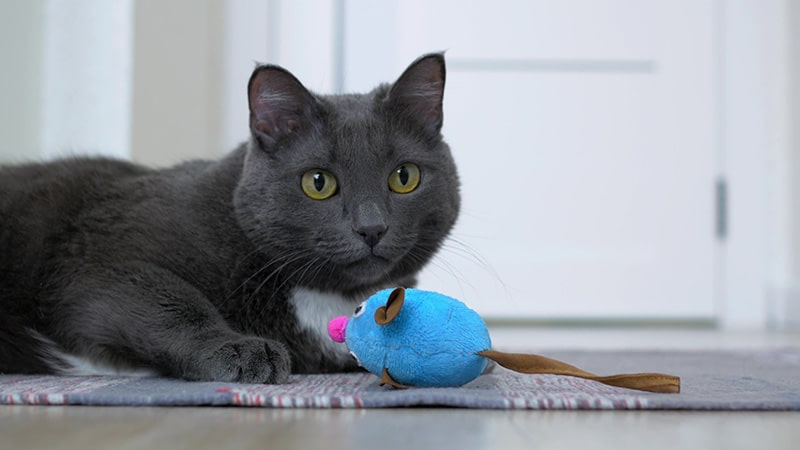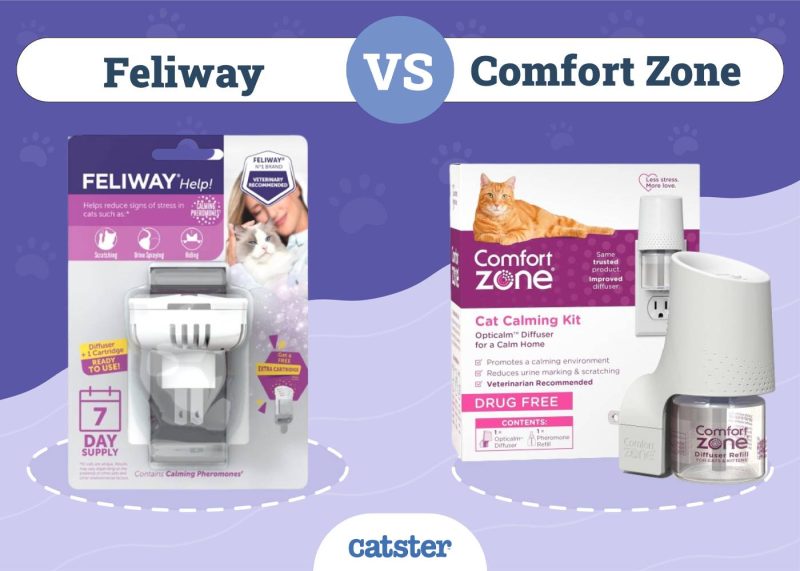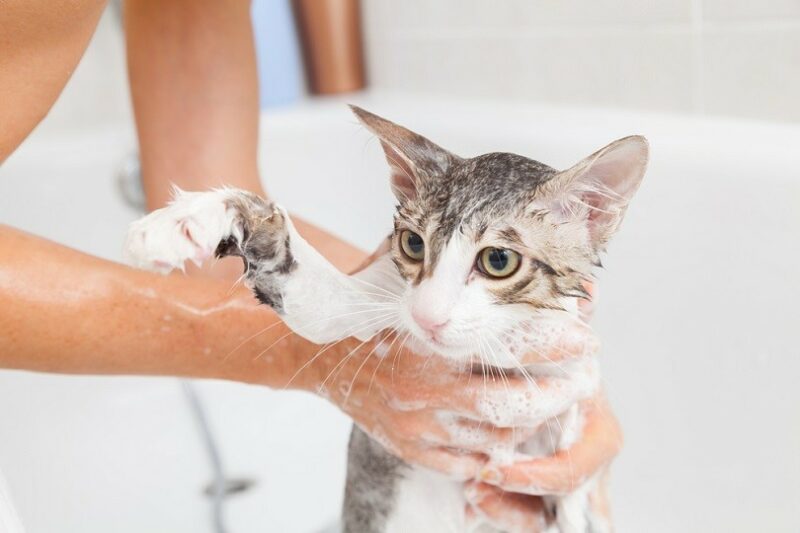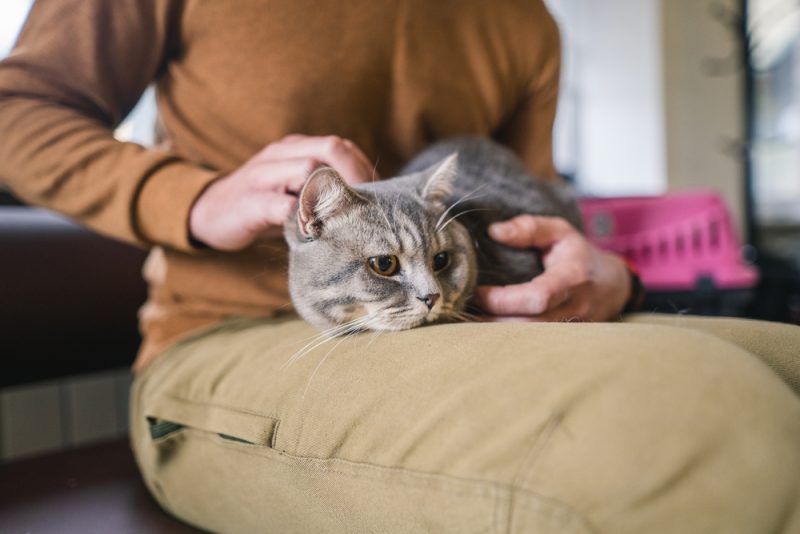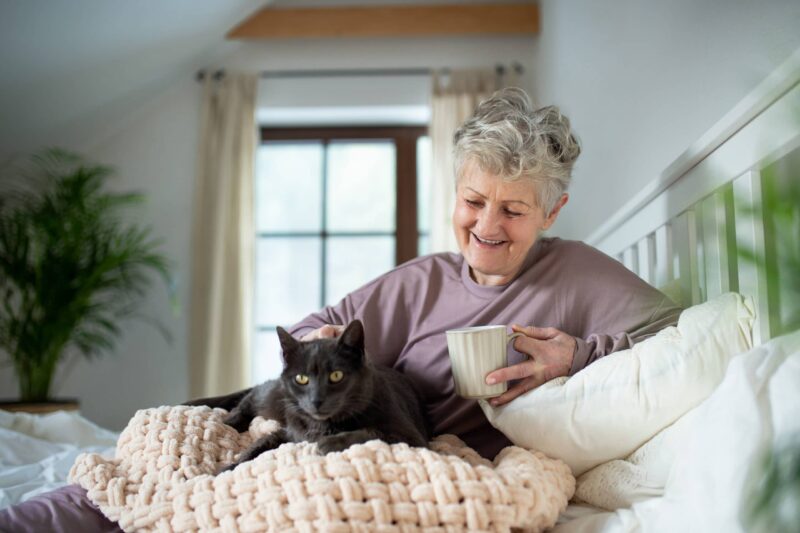In this article
Cats are curious creatures that love to explore their environment. They often stumble upon various human foods on their adventures, which will likely result in tasting them. However, certain foods could be toxic or dangerous to cats.
One common human treat is cheese. This flavorful delicacy is nutritious and can be beneficial for people. But is cheese safe for cats? What can happen if your cat accidentally eats it? Cheese is not toxic for cats, but this dairy product is not good for them and can lead to several problems, so it’s best for cats not to consume it.
So, if your feline consumed a small piece of cheese, there’s no need to worry, but if your cat ate a large amount of cheese, it might be a good idea to monitor your furry friend and visit the vet if needed.
Read on to learn more about cats eating cheese, if it’s a safe treat for felines, and what to do if your feline eats cheese.

The Main Ingredients in Cheese
Before we discuss how cheese affects cats and whether it’s safe, here are the main ingredients in cheese and their possible effects on feline health.
Milk
There’s a common belief that all cats should drink milk throughout their life and that most dairy products are entirely feline-friendly. However, the truth is a bit different. Most cats are lactose intolerant. Kittens are born with the ability to process lactose due to an enzyme called lactase. But as they grow and turn into adult cats, their bodies produce less of this enzyme, which is why many cats end up lactose intolerant.
If they eat cheese, lactose-intolerant cats could experience gastrointestinal upset, vomiting, and diarrhea. Therefore, most dairy foods that contain milk are not the best options for your cat.

Salt
While it’s a common addition to human cuisine and foods like cheese, salt is not great for pets. Some cheeses are particularly high in salt and an excess can make them unwell. If cats consume large amounts of salt, they can even experience salt poisoning.
If your cat ate a large amount of cheese or is showing any signs of being unwell then contact your vet for an appointment or advice.
If you need to speak with a vet but can't get to one, head over to PangoVet. It's an online service where you can talk to a vet online and get the advice you need for your pet — all at an affordable price!

Starter Culture and Rennet
Starter culture and rennet contain beneficial bacteria and enzymes that give cheese its flavor. Currently, there is no information on how these bacteria and enzymes could affect pets, enzymes are proteins that a cat should be able to digest. These cheese ingredients are unlikely to cause a cat too many issues if they accidentally ingest some.

Is Eating Cheese Safe for Cats?
According to the University of Missouri, cheese is considered a safe treat for cats if given in moderation1. Generally speaking, healthy cats should indeed be okay if they eat small amounts of cheese. But if your cat has a specific health condition or is intolerant to lactose, eating cheese may be harmful.
Also, several cheeses are more cat-friendly than others, as they contain less lactose (Swiss cheese, cheddar, etc.). That said, they can still lead to stomach upset and other possible health problems.
Some cheeses may contain spices and ingredients like garlic, onion, and chives, which are toxic to cats. Also, most cheeses are high in fat and calories, so even small amounts on a regular basis can eventually lead to weight gain.
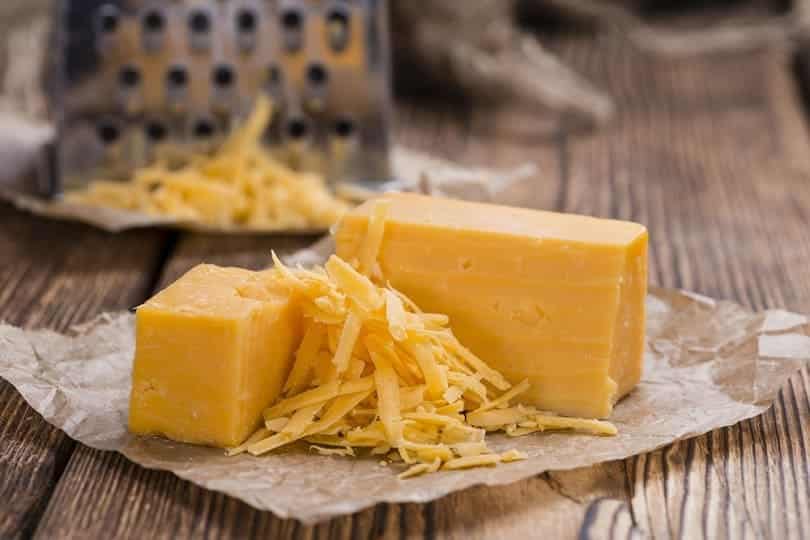
Should Cats Eat Cheese?
If your cat eats cheese, there’s a possibility of nothing happening, but there’s also a chance of them having a bad reaction. Basically, cheese could be safe for some cats and cause other cats to become unwell.
Our advice is to avoid giving this treat to your cat if possible and choose other safer options. However, if you really want to, you should know which cheeses are more suitable for cats and which ones aren’t.
What Should You Do If Your Cat Ate Cheese?
If your cat ate cheese, there’s no need to panic. Instead, try to stay calm, check how much cheese your cat ate, and read the cheese label to see if it contains any harmful ingredients. Most healthy cats shouldn’t experience any problems if they eat small amounts of cheese; however, large amounts might cause issues even for healthy cats.
Either way, it’s best to monitor your cat afterward. If you notice any signs of your cat becoming unwell, talk to your vet and go for a check-up if necessary.
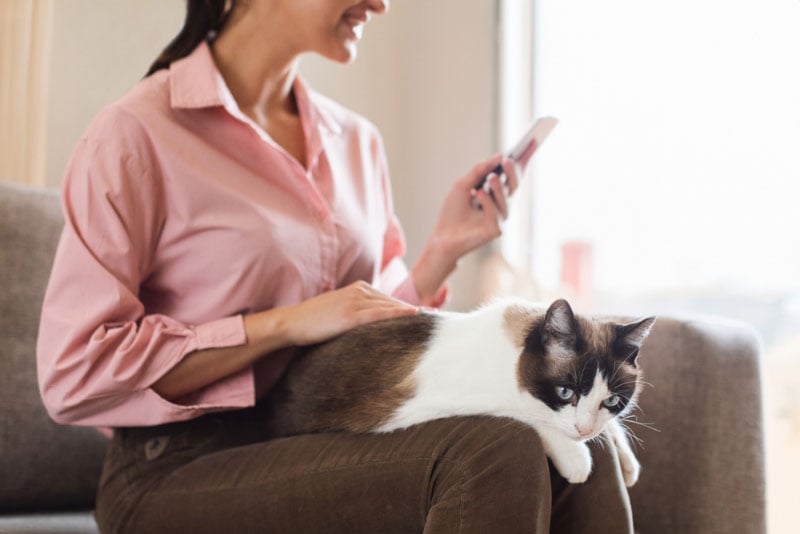

Which Cheeses Are Safe for Cats?
If you want to feed cheese to your cat, you should know which ones might be more cat-appropriate and how to feed them to your feline safely.
- Cheddar — This type of cheese is popular and more suitable for cats than other cheeses, as it’s low in lactose.
- Mozzarella — This type of cheese is extremely high in lactose, which is why it might not be the most suitable option for your feline.
- Swiss — This type of cheese is typically low in lactose and sodium and contains plenty of protein, so it can be a good choice if you want to give cheese to your cat.
- Brie — This type of cheese might not be the best option for cats because it contains raw milk, which can contain harmful bacteria like Salmonella.
- Blue cheese — This type of cheese is also known as moldy cheese. The mold contains penicillin, which could harm your cat.

How to Safely Feed Cheese to Your Cat
Besides choosing the proper type of cheese, you should also know how to feed it to your cat:
- Speak with your vet — Before giving cheese to your cat, it’s best to discuss the decision with your vet. Your veterinarian will be able to verify if cheese is truly safe for your cat, as they know your cat’s current health and medical history.
- Do the needed calculations — If your vet approves your cat eating cheese, you’ll need to calculate the amount that’s safe for your furry friend. Consider the calories that the cheese contains, and ensure that the amount that your cat eats won’t be too high in calories.
- Prepare — Choose a cheese that’s low in lactose and salt, and cut it into small pieces suitable for your feline.
- Monitor your cat — Feed a small amount of cheese to your cat, and monitor your furry friend for any changes.
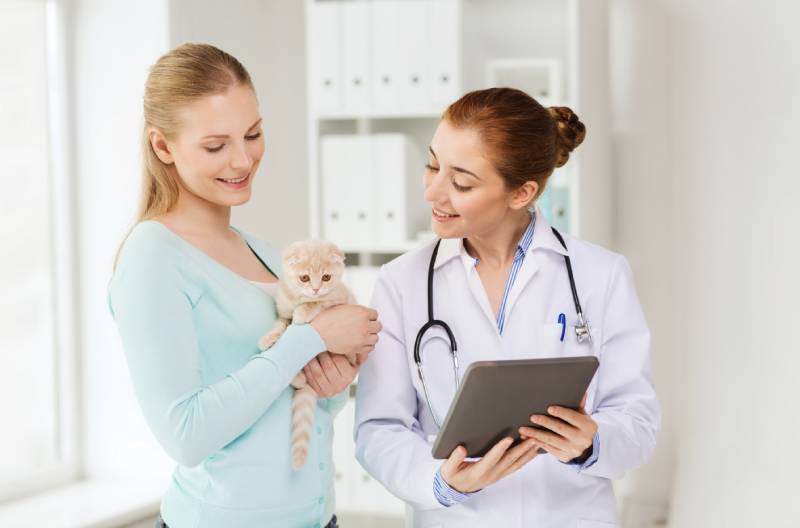

Final Thoughts
If your cat eats a bit of cheese, you should monitor them for possible issues that may arise and react if you notice anything out of the ordinary. Generally speaking, most healthy cats won’t experience any issues if they consume small amounts of cheese. However, if your cat eats large amounts of cheese, it might be best to contact your vet to ensure that your furry friend is okay.
Featured Image Credit: Lysikova Irina, Shutterstock
